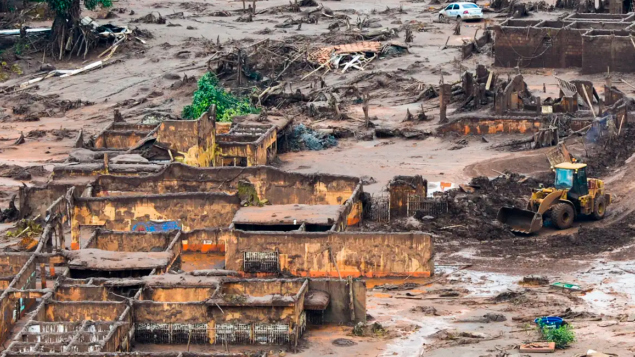The Final Push: Brazil’s Largest Compensation Agreement on the Verge of Collapse
The Mariana dam disaster, which occurred in November 2015, remains one of the most devastating environmental tragedies in Brazil. The collapse of the Fundão tailings dam, owned jointly by Vale, BHP, and Samarco, resulted in 19 fatalities and widespread ecological damage, affecting the Doce River and leaving thousands displaced. As the three-and-a-half-year negotiation for a final compensation agreement nears its climax, the stakes couldn’t be higher, with R$ 140 billion on the line.
The Stakes and the Timeline
The agreement aims to compensate the victims and the states of Minas Gerais and Espírito Santo, which suffered the brunt of the environmental destruction. Spearheading these negotiations has been Judge Ricardo Rabelo of the 6th Regional Federal Court (TRF-6). However, with his tenure ending in August, the urgency to finalize the agreement has never been greater.
“If we don’t reach an agreement by then, the change in judge could set everything back,” a source involved in the negotiations stated. The transition to a new judge would necessitate a fresh overview of the case, incurring significant delays.
Adding to the urgency, potential changes in key personnel, such as Vale’s CEO Eduardo Bartolomeo and federal prosecutors, could further disrupt the negotiation process if prolonged into the year’s end.
The Current Proposal
On June 12, Vale, BHP, and Samarco submitted a proposition to pay R$ 140 billion over 20 years. The breakdown is as follows:
- R$ 82 billion in new funds
- R$ 37 billion in previously paid amounts
- R$ 21 billion earmarked for repair obligations
While the public authorities have yet to officially respond, there is an indication that a higher figure might be demanded. President Lula himself has criticized Vale for allegedly stalling on fulfilling its financial obligations.
Nevertheless, Jarbas Soares, the Minas Gerais State Prosecutor, noted that this proposal represents “a significant evolution,” though additional negotiations are needed to reach what he termed the “magic number.”
The deputy legal president of Vale, Alexandre D’Ambrosio, emphasized that their offer reflects the ceiling of what the companies can afford, citing future cash flow projections and anticipated mineral prices.
Points of Contention
More than just a matter of financial compensation, the negotiation encompasses several critical issues:
- Tailings Removal: The government initially wanted complete removal of tailings from the Candango River, but the companies argue that this is not feasible. They have agreed to remove 9 million tons and financially compensate for the rest.
- Affected Areas: Defining the exact regions that require ongoing monitoring remains contentious.
- Fishing in the Doce River: Although the companies claim that conditions allow for the resumption of fishing, the public authorities disagree and demand further compensation.
The complexity is amplified by the multitude of stakeholders involved: representatives from each affected company, federal and state governments, and various ministries and public offices, all with diverging interests. Even the companies themselves are not entirely aligned, with Vale’s reputational risk being higher as a Brazilian entity compared to the Anglo-Australian BHP.
The Broader Implications
The outcome of these negotiations carries profound implications. A swift agreement could ensure immediate reparations and close the chapter on this tragic event. Failing to finalize the deal would not only prolong the suffering of affected communities but also keep the legal and financial uncertainties hanging over the involved companies.
Furthermore, settling this agreement in Brazil could mitigate related legal actions abroad, such as the class action in London filed by the law firm Pogust Goodhead, which hinges on the argument that justice has not been served domestically.
Conclusion
Jarbas Soares emphatically underscored the gravity of the situation, warning that failure to reach an agreement would result in significant and prolonged detriment to Minas Gerais and Espírito Santo. The consensus is clear: the time to act is now.
As the clock ticks down, this pivotal agreement stands as a monument to Brazil’s quest for justice and environmental restoration in the face of industrial catastrophe.
For updates and further information, visit the official website of Vale.
